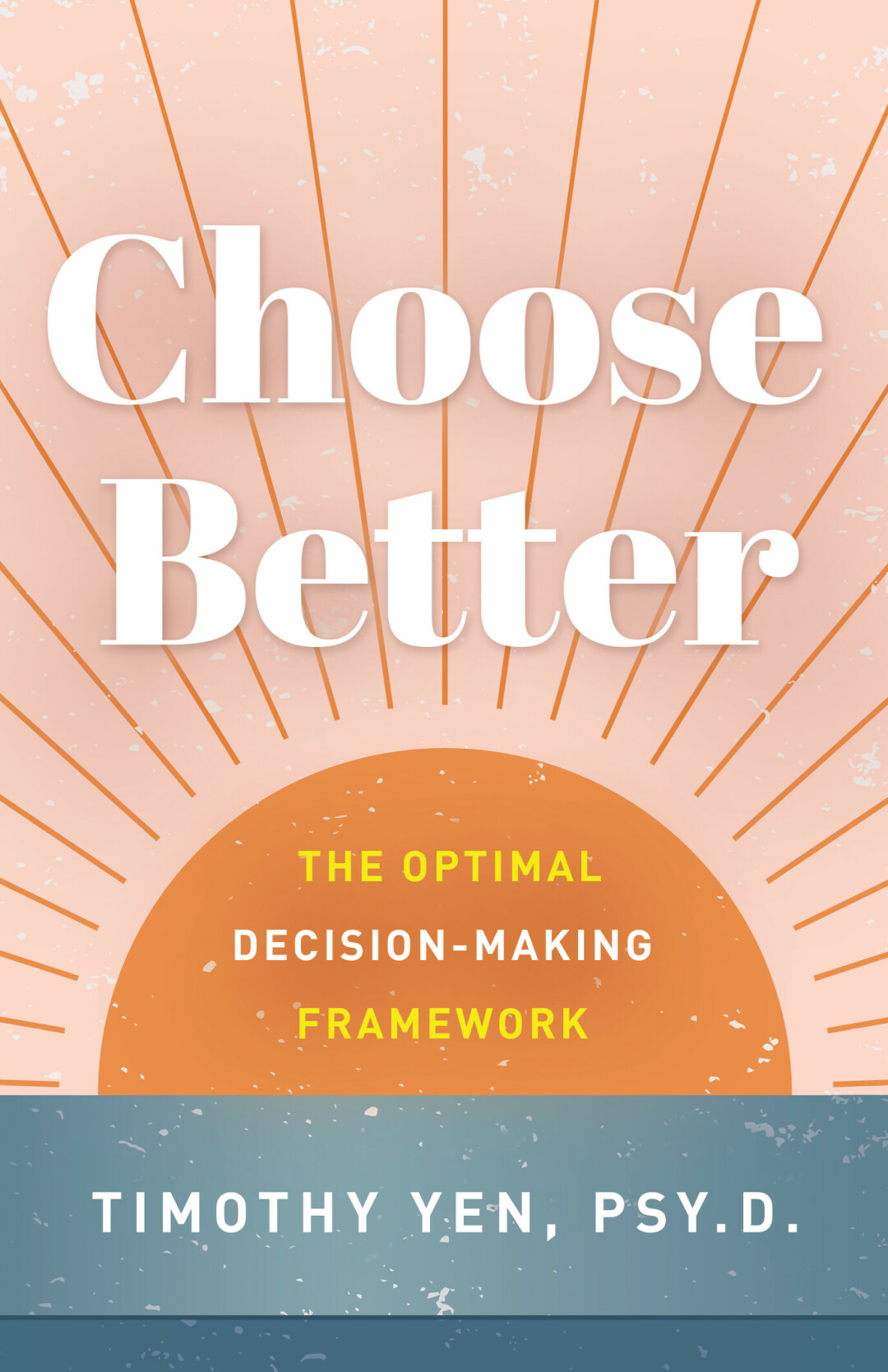Want to Make Better Decisions? Your Guide to Finding Your Values
Thursday Feb. 4th, 2021

The following is adapted from Choose Better.
Living well means creating values that are aligned with your individuality. So how do we know our values? There are several ways to begin a dialogue about values.
As a starting point, discern your personal values and what is most important to you. By identifying your individual values, you establish a universal baseline for your decision-making. Your values become the reference point with which you compare your decisions.
For those who are new to identity formation work, figuring out values may require experimentation with different facets of identities and experiences.
A Simple Start in Identifying Your Values
One great way to identify your values is through psychological assessments. After all, a vital part of finding the right answers is asking the right questions. Psychological tests can reveal important information about yourself, and can help organize that information into understandable answers about your values.
My personal favorite is the Enneagram personality test. This is a great tool to discover your personality type. It uncovers what makes you tick and why! It also reveals your personality under pressure and reveals the “dark and unhealthy” aspects of yourself. Other personality tests to consider include:
• Big Five Personality Test (e.g., 16PF, NEO-PI-R, IPIP-NEO)
• DISC
• LIFO Survey
• Myers-Briggs Type Indicator (MBTI)
These are great tools to get yourself asking some honest questions. Get to know yourself first!
Though these results may not explicitly spell out your values, the answers of these tests will point to your intrinsic strengths and personal qualities. Understanding your personality will then help sort out the characteristics that inform your values.
My Enneagram Results
As a brief example, I will share a small portion of my Enneagram results. My highest score for my personality type was a Type Three. Type Three is also known as the Achiever, whose leading motivation is success and efficiency.
It revealed my strong desire for accomplishment and being the best version of myself. This is partially why I was driven to write my book, Choose Better, because the values of being my best and helping others be their best matter to me!
With these Enneagram results, I became more aware of my strengths and shortcomings.My value in personal growth helps me leverage my strengths while also addressing my shortcomings.
What Do Your Personality Test Results Reveal About You?
Then there are specific tests that reveal other aspects of yourself. Hogan’s Motive, Values, Preference Inventory (MVPI) identifies your natural affinity toward certain values (e.g., aesthetics, affiliation, altruism, commerce, hedonism, power, recognition, science, security, and tradition). Preferences are neither good nor bad. People are simply wired to care about certain things over others.
CliftonStrengths 34 (also known as StrengthsFinder 2.0) by Donald O. Clifton and The StandOut Assessment by Marcus Buckingham highlight your top strengths and provide ideas on how to incorporate them into your life.
Emotional Intelligence 2.0 by Travis Bradberry and Jean Greaves utilizes the four domains that comprise emotional intelligence, assesses your ranking in each area, and suggests specific skills to strengthen that domain.
The Speed of Trust by Stephen Covey also has a short assessment to identify your level of trust and provides ways to improve areas of weakness.
To identify your values within a romantic relationship, consider taking the Prepare/Enrich assessment, which will identify areas of growth and strength across the most important nine domains in a relationship in relation to your partner’s scores.
Whatever assessments you decide to take, the important thing is to acquire information that helps you discover your identity and values.
Beyond Personality Tests
If you do not want to take these formal assessments, there are other ways to uncover your values. I have personally experienced more informal methods to gain additional clarity about myself. The Passion Test by Janet and Chris Attwood goes through a series of questions and has you rank your interests from most important to least important.
You could also do a modified version by using a list of more generic values for consideration.
Before referencing a list of values, consider writing out values from memory first and see what you can identify.
Then, simply search for “list of values” on a search engine like Google. There are lists that range from 50 to 200 values. Pick a list (perhaps choose a shorter list for starters).
You can add your own values and write them down. Review the list and circle the values that resonate more strongly for you.
Thoughts and Feelings Play a Vital Role
When you are comparing each item to see which value ranks higher than another, I would recommend starting with your feelings. Which values provoke a stronger feeling? When you take a moment to marinate with that value in mind, does it induce a weightiness in your heart?
Identifying the most essential values allows you to mindfully incorporate them in your decision-making. Although most of these values may be nice to have, which ones are most important to you? This principle is reflected in Gary Chapman’s book The Five Love Languages (another great assessment).
Love languages are ways in which people communicate and receive love.
The five love languages are:
1. Words of affirmation
2. Physical touch
3. Quality time
4. Acts of service
5. Gifts
Now, most people want to experience love in all five ways, but they are not weighted equally!
Probably one or two of these love expressions resonate more strongly, and if missing, you would not feel loved. For example, I am a “words of affirmation” and “physical touch” kind of guy.
Just as we want our lives filled with the right love language (the one that matters to us most), we also want our everyday living to reflect the values that matter to us.
Identify Your Values for Better Decisions
Whatever method you decide to execute, clarity on your identity and Values of Self is crucial for optimal decision-making. If you truly want to make optimal decisions, do not skip these exercises! There are no shortcuts. Identity formation requires dedication and hard work. Even if you managed only to identify one or two values, run with them for now!
Keep those values in the forefront of your mind and incorporate them in your decisions. Values that truly matter will rise to the surface while inferior matters will drift into the background. Take the time to identify your values because your purpose depends on them. Your values become the north star in guiding your everyday decisions, which creates authenticity and greater self-esteem.
For more advice on making better decisions, you can find Choose Better on Amazon.
Timothy Yen is a clinical psychologist with a doctorate from Azusa Pacific University, practicing in the East Bay area and leading conferences and retreats around the globe. Between his years in private practice and another eight years as a Mental Health Staff Sergeant in the US Army, he’s empowered hundreds of individuals, families, organizations, and teams to develop authentic relationships and grow into their best selves. He currently resides in Northern California with his wife and son.
| Tweet |